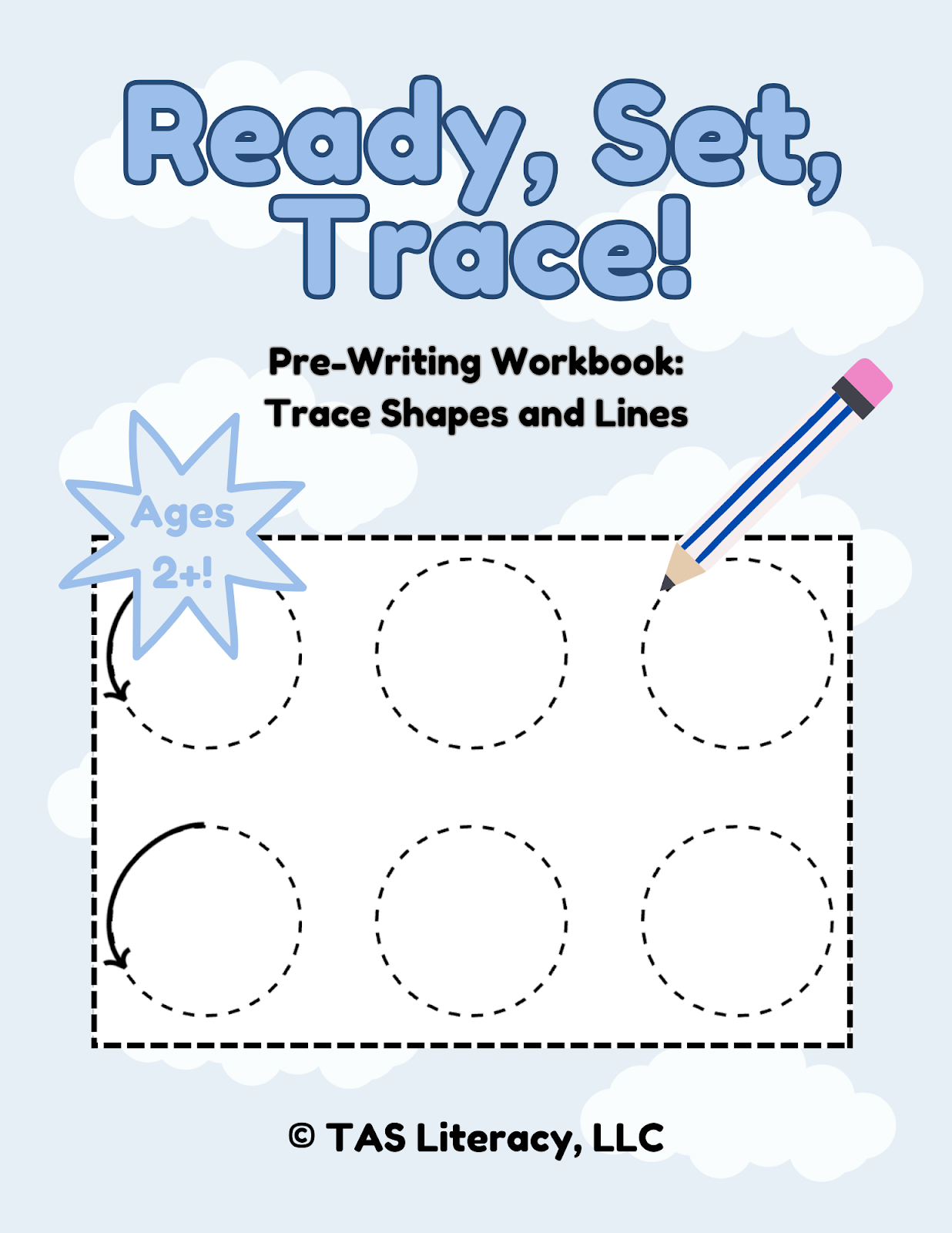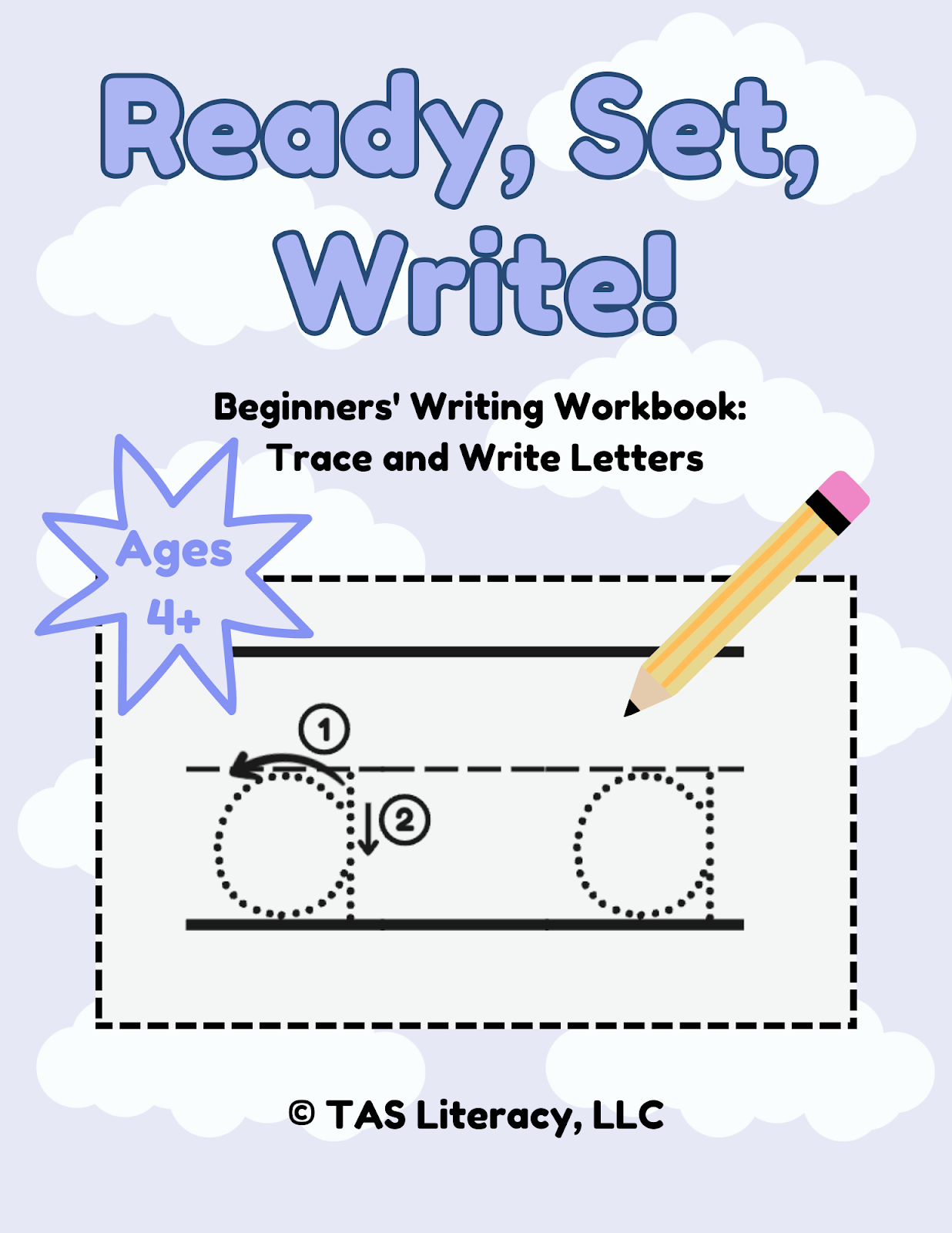Early literacy skills are crucial in laying a solid foundation for your child’s educational journey. The development of these skills at a young age can significantly influence your child’s academic success and lifelong learning habits. Throughout this post, we will explore the benefits of early literacy and introduce fun, practical ways you can promote early reading and writing skills at home! We will also introduce our comprehensive workbooks designed to enhance your child’s pre-writing and handwriting skills, phonological awareness, and alphabet knowledge.
The Benefits of Early Literacy Skills

Early literacy skills encompass a range of abilities, including recognizing letters, listening comprehension, oral vocabulary, understanding that print or text carries meaning, and beginning to write. Research shows that children who develop strong literacy skills early on are more likely to excel academically, exhibit greater cognitive abilities, and develop better communication skills.
1. Academic Success: According to the National Early Literacy Panel, early literacy skills are strong predictors of later reading and academic achievement. Children who enter school with a solid foundation in literacy are better prepared to grasp more complex concepts.
2. Cognitive Development: Engaging in literacy activities stimulates cognitive processes such as memory, attention, and problem-solving. Studies indicate that early exposure to reading and writing enhances brain development and neural connectivity.
3. Communication Skills: Early literacy fosters language development and effective communication. Children learn to express themselves clearly and understand others, which is essential for social interaction and emotional development.
Fun and Easy Ways to Grow Your Child’s Literacy Skills

Parents play a pivotal role in nurturing their child’s literacy. Here are some simple, but engaging activities you can do at home with your child!
1. Trips to the Bookstore or Library
A visit to the bookstore or local library can be a magical experience for young children! Let your child explore different books and choose ones that capture their interest. Read the stories with your child and encourage them to look at the pictures, discuss the story, and even “read” the book with you, fostering a love for reading and storytelling.
2. Sensory Buckets
Sensory buckets are a fantastic way to engage your child’s senses while promoting literacy! Fill a bucket with various textured materials (sand, rice, beans, kinetic sand) and hide letter-shaped toys or cards within. As your child digs through the bucket, they can identify and name the letters they find, enhancing their letter recognition skills. They can also trace letters in the sand or rice to strengthen their phonological awareness!
3. Alphabet Play
Alphabet play can be both fun and educational. Use alphabet magnets on the fridge, foam letters during bath time, or create an alphabet scavenger hunt around the house. These activities help children learn letter shapes and sounds in an interactive and playful manner.
4. Storytelling Sessions
Reading stories together is one of the most effective ways to build literacy skills. Choose age-appropriate books that interest your child and read with expression, asking questions about the story and encouraging your child to predict what might happen next. Don’t shy away from vocabulary words- ask your child what they think it could mean based on the context of the story. This interaction promotes comprehension, critical thinking, and vocabulary acquisition!
5. Writing Practice
Provide your child with various writing materials such as crayons, markers, and pencils. Encourage them to scribble, draw, and write letters or words. They can even help you fill out your grocery list! This practice helps develop fine motor skills and familiarizes them with the act of writing.
Introducing TAS Literacy Workbooks


At TAS Literacy, we understand the importance of structured learning in early literacy development. Our workbooks are designed to provide engaging, research-backed activities that promote key literacy skills.
Workbook 1: Building Pre-Writing Skills
Our first workbook focuses on pre-writing skills, essential for young children to develop the fine motor control needed for writing. The activities are designed to strengthen hand muscles, improve coordination, and familiarize children with the shapes and movements required for writing. This workbook is best suited for children aged 2 and older.
Workbook 2: Handwriting, Phonological Awareness, and Alphabet Learning
The second workbook builds on these foundational skills by introducing handwriting practice, phonological awareness activities, and exercises for learning and writing the letters of the alphabet. Each section is crafted to be both educational and enjoyable, ensuring that children remain engaged and motivated. This workbook is best suited for children aged 4 and older.
Why Choose TAS Literacy Workbooks?
Our workbooks are more than just practice sheets; they are comprehensive tools that integrate fun with learning. Each activity is backed by educational research and designed to target specific literacy skills critical for early learners. There are also opportunities for children to color on each page, enhancing creativity and focus. By incorporating these workbooks into your child’s daily routine, you can ensure they are well-prepared for their academic journey ahead.
You can find our workbooks here on Amazon!
For more information about best literacy practices, free resources, and in-person and online tutoring sessions, follow @tasliteracy on Instagram or visit www.tasliteracy.com.